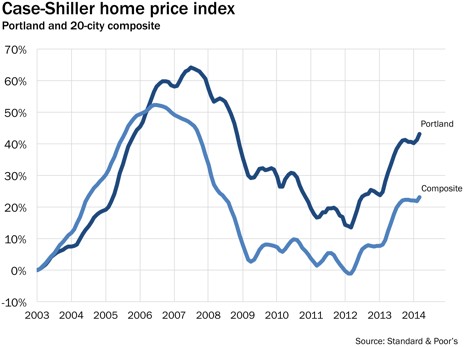 BY JASON NORRIS | OB BLOGGER
BY JASON NORRIS | OB BLOGGER
Over the last several months we have seen a wave of cross-border acquisitions, primarily U.S.-based companies looking to purchase non-U.S.-based companies. There are a few reasons for this, but the main culprit is the U.S. corporate tax system. The United States has one of the highest corporate tax rates in the world.
 BY JASON NORRIS | OB BLOGGER
BY JASON NORRIS | OB BLOGGER
This past month, the World Bank lowered their 2014 global GDP growth assumptions. Citing the BRICs (Brazil, Russia, India and China) as well as the U.S. as culprits for the lowered estimates, growth was reduced to 2.8 percent for 2014, down from 3.2 percent. The IMF recently lowered its forecast for U.S. GDP growth to 2 percent from 2.8 percent for 2014, primarily because the negative numbers from the first quarter.
We believe the slowdown in the U.S. is solely a first quarter event due to weather, and we will see acceleration throughout the year (see our investment outlook). We are seeing confirmation of that with recent data from the ISM, industrial production and factory orders. Although slowing, China’s growth is still relatively robust and inflation remains under control. Regrettably, Brazil and Russia aren’t as fortunate. As the chart below highlights, Brazil and Russia are stuck in a slowing growth, high inflation environment that is difficult to overcome. With high inflation, there is pressure to raise interest rates, but that leads to an increased headwind for growth.

Unfortunately for Brazil, the build up for the World Cup did not provide the added stimulus that was hoped for. Corruption and cronyism have proved to be rampant and the economy has not seen the desired lift. There was hope that the employment opportunities would bring about an economic boost for their citizens. This hasn’t happened and there remains a strong sense of frustration among the public.
While soccer is still far down the list in popularity in U.S., we find ourselves getting caught up in the hype of the World Cup and are hoping the U.S. can make it to the second round.
The Mob Rules
While stocks hit new highs, geopolitical issues in the Middle East may be tempering those gains. With militants gaining control of key cities in Iraq, the supply of oil has now come into question. This has resulted in a run up in the price of crude. We are of the belief that the price of oil will remain stable as the U.S. continues to increase its supply over the long term and becomes less reliant on “foreign oil,” as indicated by the chart below.

We do believe, however, that energy markets will continue to experience short-term volatility due to global tensions. We have been overweight the energy sector based on our belief of an expanding global economy. This recent spike has resulted in the sector being one of the best performers over the last several weeks. If energy prices remain elevated into the summer driving season, U.S. consumer spending may face some headwinds.
Taxes Matter
2014 has seen a major pick up in merger and acquisitions with a major catalyst being taxes. Earlier this year, Pfizer attempted to purchase UK-based AstraZeneca and a rejected bid from Abbvie for Shire Pharmaceuticals PLC. Most recently, we saw the largest confirmed tax inversion deal with Medtronic agreeing to purchase Ireland based medical device manufacturer, Covidian. The value of the deal over $40 billion and will probably draw some political scrutiny as it gives Medtronic to move its “headquarters” from Minneapolis to Dublin. The income tax benefits aren’t major (reducing corporate rate from 19 percent to 17 percent), however, it would allow Medtronic to utilize all of its cashflow for share buybacks and/or dividends. U.S. companies with cash generated overseas cannot use it for buying back stock, dividends, U.S. hiring, as well as capital investments without repatriating it back to the U.S. and having to pay a higher tax rate. If the Medtronic/Covidian deal is approved, Medtronic will have access to all of its cash for those purposes as they will be officially and Irish company.
Our Takeaways for the Month
- Key emerging markets are struggling with growth and inflation and investors have to be selective
- Global growth is still healthy and the U.S. should lead the developed world in economic expansion in 2014
- Go Team U.S.A.
What is Tax Inversion?
Over the last several months we have seen a wave of cross-border acquisitions, primarily U.S.-based companies looking to purchase non-U.S.-based companies. There are a few reasons for this, but the main culprit is the U.S. corporate tax system. The United States has one of the highest corporate tax rates in the world. Therefore, multinational companies, based in the U.S. are looking to lower their tax rate by changing their country of domicile. We saw a wave of this several years ago as U.S.-based companies moved their headquarters offshore, (i.e., Covidian, Accenture, Ingersoll-Rank and Eaton) to Ireland. Now companies are looking to acquire non-U.S. companies and move their country of domicile offshore. However, it is not just the tax rate, it is also the tax structure. When U.S. companies earn profits outside the U.S., they will pay taxes on those profits where they were generated. However, if they want to move them back to the U.S. and reinvest the cash in people, plant, equipment or buyback stock or pay dividends, they have to pay the U.S. tax as well. Therefore, companies leave trillions of dollars outside the U.S. Multinational companies can set up headquarters outside the U.S. and utilize 100 percent of their cash at the lower tax rates. We believe we will see this trend continue until the U.S. modifies its tax code.
Jason Norris, CFA, is executive vice president of research at Ferguson Wellman Capital Management. Ferguson Wellman analysts blog on the financial markets for Oregon Business.


 BY JASON NORRIS | OB BLOGGER
BY JASON NORRIS | OB BLOGGER